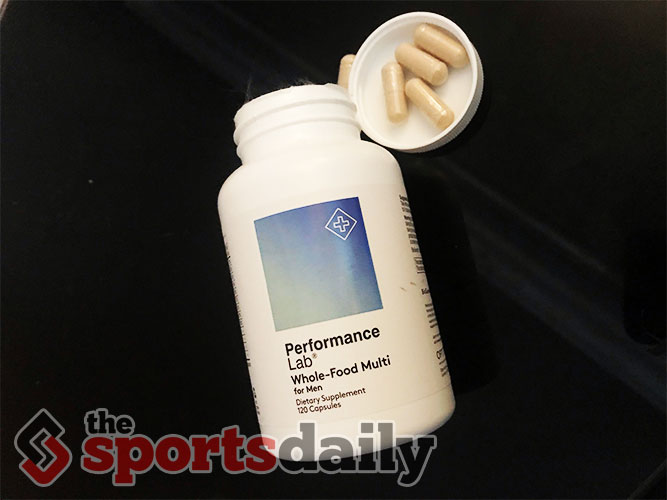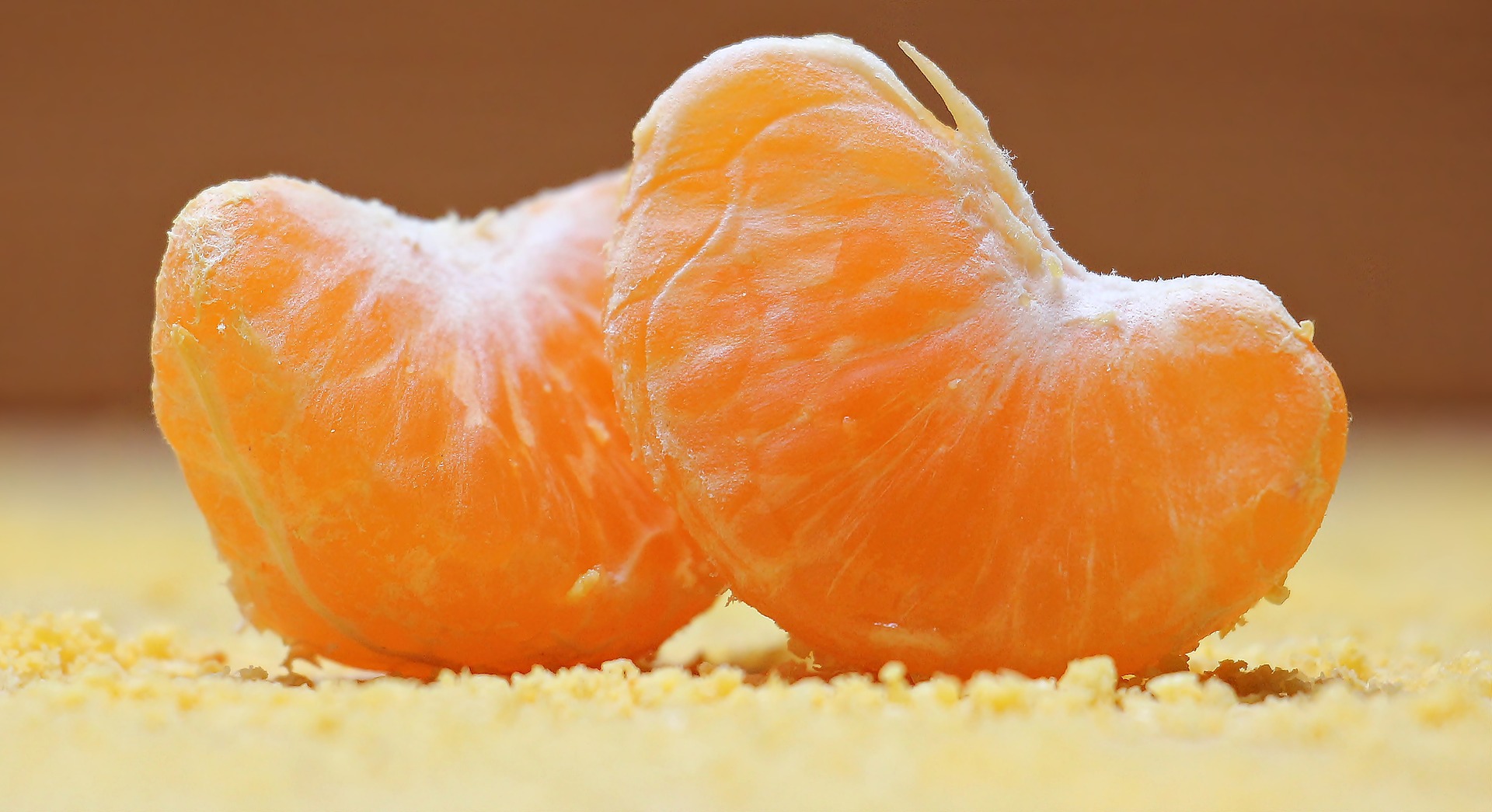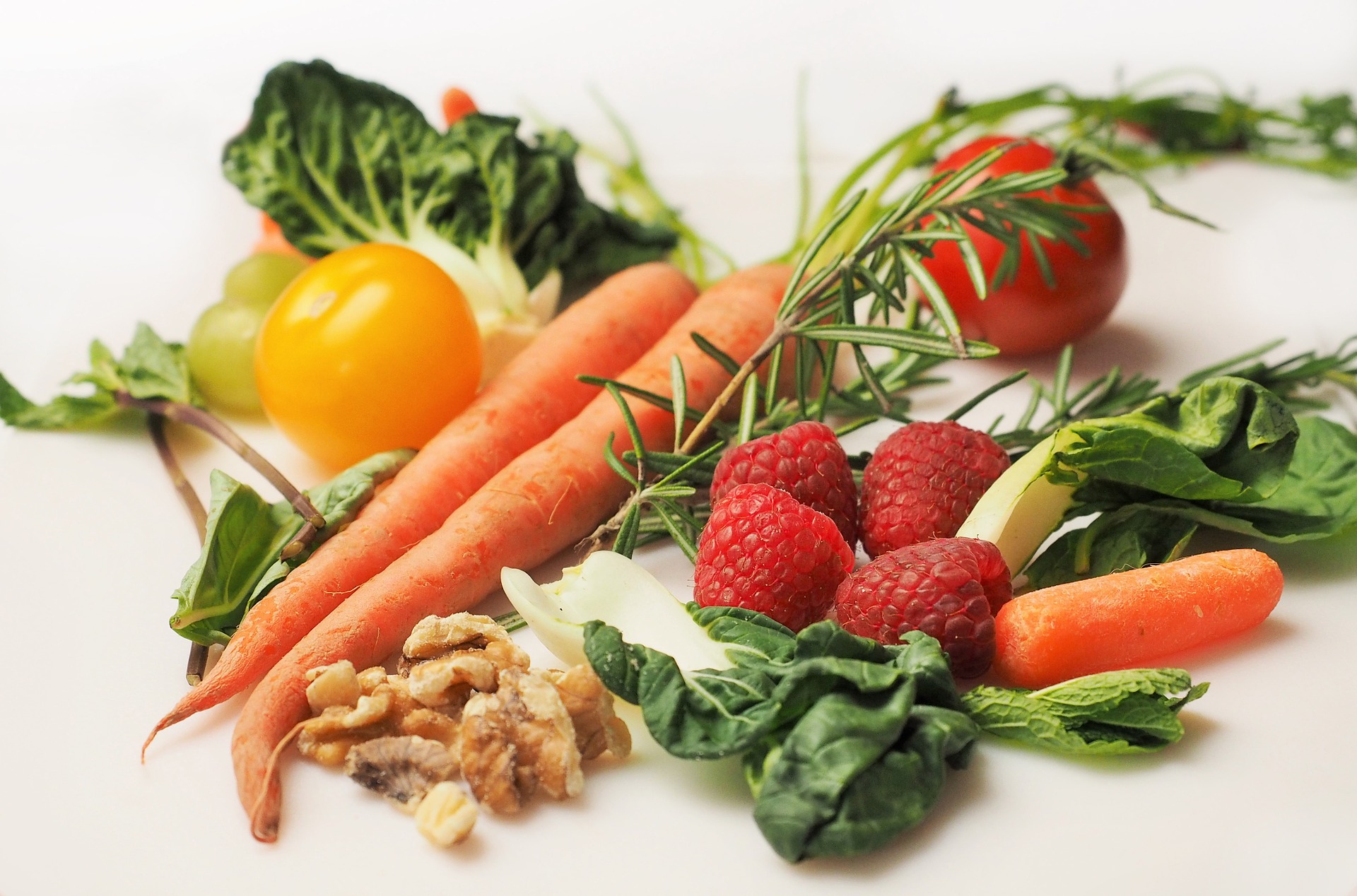- 10 reasons you need a multivitamin supplement…
- The SAD truth about the food we eat…
- Your one stop shop for daily nutritional.
This is about a 7-minute read…
Did you know that just 5% of Americans are getting their recommended daily vitamin intake? [1]
The reason…
Busy lifestyles, longer working hours and lazy eating all play a part.
But the truth is, even if you follow a healthy and balanced diet you can no longer rely on getting all the nutrients you need from food alone.
Luckily, help is at hand.
Performance Lab Whole-Food Multi is a potent, pure and vegan-friendly supplement that provides at least 100% the daily value of more than 17 essential vitamins and minerals.
Why Multivitamin Supplements Are So Important
Staying healthy isn’t easy. In fact, it’s getting harder.
The way we live, work and eat is putting increasing demands on our health and wellbeing.
Fact: The most recent studies show that 44% of American’s east fast food at least once a week. With 6% eating it daily.
Nutrient deficiencies can do significant damage to your daily physical and mental performance. Plus, make you age faster and leave you more prone to long-term chronic illness.
With processed foods making up close to 70% of the Standard American Diet, it is no longer practical to get your nutrition just from food. And if you’re cutting calories or exercising regularly, it is even more important that you don’t neglect your nutrition intake.
This is where finding a quality multivitamin can be invaluable.
A well-formulated supplement can bridge the nutrition gap in your diet, quickly and easily without a major lifestyle change. Here are 10 good reasons you should seek out a boost in a bottle.
10 reasons you should take a Multivitamin Supplement
- You might already be vitamin deficient…
Recent research has revealed that up to 90% of American’s are deficient in at least one key nutrient.
A shocking 70% have a vitamin D deficiency and as many as 25% are deficient in vitamin C.
The vitamin D stats are perhaps excusable, as it is not that easy to get in food – beef liver is not to everybody’s taste, salmon is expensive and swordfish not common on menus.
But the fact that one quarter of American citizens are failing to get the single apple… banana… medium-sized tomato… or handful of berries to make up their daily recommended dose of vitamin C suggests nutrient deficiency is becoming a nationwide epidemic.
- Relying on food alone for nutrients is not enough…
Fact: You would need to eat 8 oranges today to get the same amount of vitamin A as your grandparents got from eating one.
The way that food is produced today means that fruit and vegetables have a far lower vitamin and mineral content than in years gone by.
A study of crops between 1950 and 2009 found that in fruit, levels of iron had dropped by 43% and calcium had dropped by 12%. In vegetables, levels of vitamin C were down by 15% and the vitamin B2 content dropped a huge 38%.
Because of the increased use of pesticides, these numbers are typical. So the choice is simple… you need to either up your fruit and veg intake, or reach for a supplement.
- Modern farming is not your friend…
Even organic produce is battling against 50+ years of improper farming. When plants are repeatedly grown on the same soil, the land loses its goodness and every crop loses more natural vitamins and minerals. Plus, most plants will sit on shelves, on trucks or in storage for weeks before they get to you. Which also decreases nutrient content.
It’s also now common for fruit and vegetables to be grown for extra sugar content, making them high in fructose but lower in key nutrients.
When plants contain fewer nutrients, the animals that are farmed on those plants suffer. And that means we suffer. A study in the UK revealed that copper levels have dropped 90% in dairy, 55% in meat and 76% vegetables between 1940 and 2002.
- You can’t even trust the water…
Modern water production also filters out much of the good stuff. Until relatively recently, unfiltered fresh water was our primary source of magnesium – a mineral essential for more than 300 biochemical functions in your body. But not anymore.
Bottled water is not only filtered of key minerals but also contaminated with chemicals like chloride and fluoride. Drinking water with more calcium content than magnesium has been linked to heart attacks.
- Cutting calories also means cutting nutrients…
If you’re cutting fat from your diet, including intermittent fasting as part of a training program or just eating less – you’re going to be depriving your body of essential vitamins and minerals. And that is going to leave you malnourished.
We have been designed over million of years to consume lots of nutrient-heavy calories in order to function. The more active we are, the more calories and nutrition we need. Exercise will burn through nutrients at a faster rate and you also need them for muscle recovery and growth.
Tip: If you’re eating less or training more, you need to supplement your diet with essential vitamins and minerals to avoid tiredness and possible illness.
Plus, the older we get the worse our bodies get at processing food. The natural acids and enzymes we produce to digest and absorb nutrients decline with age, so we find ourselves needing to consume more and more just to maintain our recommended daily intake!
- More calories doesn’t necessarily mean more nutrients…
But… simply eating more isn’t the answer. More food will boost your intake of vitamins and minerals. But if the food your loading up on is poorly produced or low-quality, you will have to eat ridiculous amounts just to get the right amount of nutrition. And that’s how you get fat.
Animal food is generally more nutrient rich but modern farming and the trend away from eating animals means we are consuming fewer nutrients per unit of food. [8]
Grain-fed meat is very low in vitamins and minerals, as well as important antioxidants, micronutrients and fatty acids. When a plant-eating animal has its natural diet replaced with grain, it will become malnourished just like a human would. Grain-fed cattle, like farmed seafood can also carry more toxins too.
- Bad food isn’t your only problem…
It’s not just what’s going on inside our bodies, but on the outside too. Even if you eat well, exercise regularly and generally look after yourself, life throws toxins at you from all angles.
We are surrounded by harmful plastics, solvents and household cleaners. Poisonous perfumes, deodorants and fabric softeners. Unnatural lighting from TVs, mobiles and tablets. Plus, everyday stresses like overwork and lack of sleep all place an extra demand on our need for proper nutrition.
- Exercise puts an even bigger strain on your nutrient needs…
If you’re taking part in any kind of exercise – whether it’s a round of golf once a week, or pounding heavy weights in the gym every night, you’re putting yourself at greater risk of malnutrition.
If you’re not supplying enough fuel for your lifestyle, you will pay the price through tiredness, injury or ill-health. So if you can’t get it through food, a timely top-up from the right supplement is a sensible option.
Tip: A vitamin D boost will help you in the gym. Studies reveal it may boost muscle strength and has natural fat-burning qualities.
- Supplements can sometimes work out cheaper than food…
Even with the best intentions, it can be a challenge to stack your daily dose of vitamins and minerals. Increasingly busy lives and the way that food is produced can make supplements a more practical way to get your nutrient quota.
Grass-fed meat and wild fish – like nutrient-rich salmon, swordfish and rainbow trout – can be hard to source and farmed alternatives tend to be higher in toxins and bacteria. Organic food is generally more expensive, so in some cases a carefully selected supplement could turn out to be a cheaper and a more convenient option.
Fact: Freezing, drying, cooking and reheating food reduces nutrient content by between 5% and 70%.
- You’ll perform better, look good and live longer…
A 20-year study of 278 American men and women who took supplements, including a multivitamin, vitamin C and vitamin D showed they were 73% less likely to suffer from diabetes and 39% less likely to have high blood pressure. Supplement users also had healthier levels of cholesterol, c-reactive protein and fatty acids.
Numerous clinical trials have backed the use of nutritional supplements over prescribed drugs, which causes almost 2 million hospitalizations and 117,000 deaths each year.
Fact: Prescription drugs are the fourth biggest cause of deaths in the United States each year.
Best Multivitamin Supplement: Performance Lab Whole-Food Multi
A well-formulated supplement will not only provide you with an insurance policy against malnutrition. It can also boost your levels of energy and performance – at work and play.
As well as putting you back in control of your vitamin and mineral intake.
Performance Lab® Whole-Food Multi is the best all-around package we’ve found.
It contains 25 ingredients in total, all in optimal doses – delivering at least 100% of your recommended daily value in 17 of them. Making it a one stop shop for the essential multivitamins and minerals you need.
It will make you feel better too. It’s packed with mind-boosting goodies including B vitamins, magnesium, zinc, iodine and selenium. All of which have a positive affect on mood.
The Copper and Iron content help keep you on your toes all day. Vitamins A, C and E will help combat exercise-induced oxidative stress if you’re committed to a training program. And your daily dose of vitamins A, C, D and B (B1, B3, B6 and B7) will help your complexion, smile and hair – so you keep looking as good as you feel!
So how does Performance Lab® Whole-Food Multi compare to alternatives?
The multivitamin market is a crowded one and there are several lower-priced alternatives on offer. But cheaper doesn’t mean better. Supermarkets are full of budget options, but much like the food on the shelves many of them fail to pack a nutritional punch.
You’ll often find fewer ingredients, lower doses and synthetic or isolated vitamins and minerals if you go down the budget route. These lose effectiveness due to poor absorption in the body.
Tip: Steer clear of multivitamins with less than 10 ingredients, as a rule of thumb. Budget multivitamins are cheap for a reason.
A real strength of Performance Lab® products is their use of BioGenesis™ technology to grow vitamins and minerals. They produce their own lab-grown nutrients, using a mix of antioxidants, enzymes and natural cofactors for cleaner, more potent results. Just as nature intended.
And their capsules are genuinely vegan-friendly. They are made from fermented tapioca, so nice and easy to digest.
Not like the misleading ‘cellulose’ labelled capsules you sometimes find in budget multivitamins, which are actually made from a semi-synthetic polymer. Not something you want to be putting into your body.
Conclusion
The way that food is produced today, you simply can’t rely on getting the nutrition you need from food alone.
That’s why just 5% of American’s currently get their recommended daily dose of vitamins and minerals.
But there is something we can do…
Performance Lab Whole-Food Multi is a potent, pure and vegan-friendly supplement that provides at least 100% the daily value of more than 17 essential vitamins and minerals.
It will help you get a competitive advantage over 95% of the nation, boosting your levels of energy, performance and general health. Highly recommended.
References
- Healthy Eating. ‘The Importance of Vitamins to Your Body’. Feb 2019. <https://healthyeating.sfgate.com/statistics-many-people-daily-vitamins-10732.html>
- BioMed Central. ‘Nutrition in US Adults’. Feb 2019. https://www.ncbi.nlm.nih.gov/pmc/articles/PMC3992162/
- Naeem, Z. Vitamin D Deficiency- An Ignored Epidemic. Int J Health Sci (Qassim). 2010 Jan; 4(1): V–VI.
- Mosdol, A. Estimated prevalence and predictors of vitamin C deficiency within UK’s low-income population. Journal of Public Health; Vol. 30: No. 4, pp. 456 –460.
- Davis, D. ‘Nutrient Decline in Garden Crops in last 50 Years’. Feb 2019. https://news.utexas.edu/2004/12/01/nr_chemistry
- Journal of Nutrition and Health. ‘Mineral Depletion in Foods As a Nation’. Feb 2019. <http://www.ncbi.nlm.nih.gov/pubmed/18309763?dopt=AbstractPlus>
- Anderson, T. ‘Sudden Death from Ischemic Heart Disease in Ontario’. Feb 2019. <http://www.ncbi.nlm.nih.gov/pmc/articles/PMC1930966/>
- Nutrition Journal. ‘Health and Nutritional Status of long-term Supplement Users’. Feb 2019. <https://nutritionj.biomedcentral.com/track/pdf/10.1186/1475-2891-6-30>
- Harvard University. ‘New Prescription Drugs’. Feb 2019. <https://ethics.harvard.edu/blog/new-prescription-drugs-major-health-risk-few-offsetting-advantages>
- Scientific American. ‘Life expectancy in the US’. Feb 2019. <https://www.scientificamerican.com/article/prescription-drug-deaths/>
- SELFNutritionData. ‘Nutritional Effects of Food Processing’. Feb 2019. <https://nutritiondata.self.com/topics/processing>
Add The Sports Daily to your Google News Feed!









